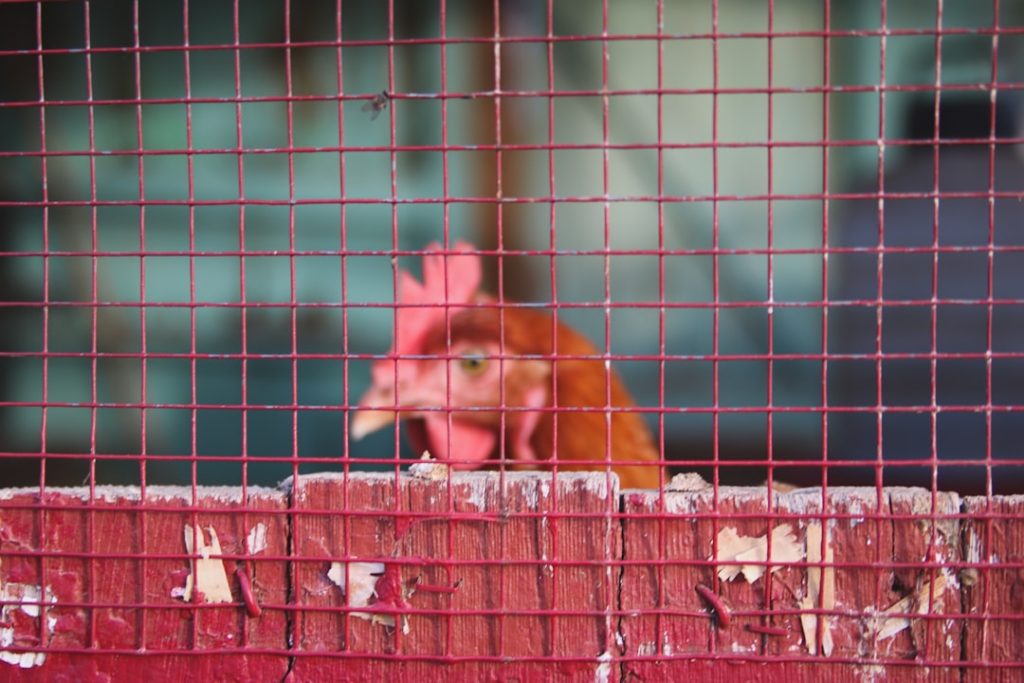Chickens exhibit complex behaviors that are essential to comprehend for their proper care. These birds are highly social and flourish in flock settings, where they establish a hierarchical structure known as the pecking order. They communicate through various vocalizations and body language.
Understanding the pecking order dynamics is crucial for maintaining flock harmony and preventing aggression. Chickens also possess natural instincts for foraging, dust bathing, and roosting, which should be accommodated in their living environment to ensure optimal well-being. As prey animals, chickens are inherently cautious and easily startled.
They have a strong instinct to seek shelter and avoid potential threats. Recognizing these natural behaviors is important for creating a safe and secure environment for the birds, as well as for developing a positive relationship with them. By understanding chicken behavior, caretakers can better anticipate their needs and provide an enriching and nurturing environment.
Table of Contents
Key Takeaways
- Chickens have natural behaviors and instincts that can be understood and managed to create a safe and secure environment for them.
- Utilizing natural barriers such as fencing and vegetation can help keep chickens safe from predators and prevent them from wandering into unwanted areas.
- Visual deterrents like scarecrows and reflective objects can help deter predators and keep chickens safe.
- Establishing a routine and consistent feeding schedule can help maintain the health and well-being of chickens.
- Building a relationship with your chickens through regular interaction and care can help create a positive and stress-free environment for them.
Creating a Safe and Secure Environment
Coop Requirements
The coop should be well-ventilated, insulated, and equipped with roosting bars and nesting boxes to accommodate the natural behaviors of the chickens.
Run Security
The run should be enclosed with wire mesh to prevent access from predators such as foxes, raccoons, and birds of prey. Furthermore, it is important to regularly inspect the coop and run for any signs of wear and tear, as well as to secure any potential entry points for predators.
Deterrent Measures
Providing adequate lighting and installing motion-activated lights can also help deter nocturnal predators.
By creating a safe and secure environment, you can ensure the well-being and safety of your chickens, allowing them to thrive in their natural behaviors without fear of harm.
Utilizing Natural Barriers

Utilizing natural barriers can be an effective way to protect your chickens from potential threats and predators. Planting dense shrubs and bushes around the perimeter of the coop and run can create a natural barrier that deters predators from gaining access to the chickens. Additionally, creating a barrier of thorny plants or installing prickly bushes can further discourage predators from approaching the coop and run.
Furthermore, utilizing natural barriers such as hedges or tall grass can provide the chickens with additional cover and hiding spots, allowing them to feel more secure in their environment. By incorporating natural barriers into the chicken’s surroundings, you can create a protective and nurturing space that allows them to exhibit their natural behaviors without fear of predation.
Implementing Visual Deterrents
Implementing visual deterrents can be an effective way to deter potential predators from approaching the coop and run. Visual deterrents such as scarecrows, reflective tape, or predator decoys can create the illusion of a human presence or a larger predator, deterring smaller predators from approaching the area. Additionally, hanging shiny objects such as CDs or aluminum foil strips can create flashes of light that startle and deter potential threats.
Furthermore, utilizing motion-activated sprinklers or noise-making devices can startle predators and discourage them from approaching the coop and run. By implementing visual deterrents, you can create an additional layer of protection for your chickens, allowing them to feel safe and secure in their environment.
Establishing a Routine and Consistent Feeding Schedule
Establishing a routine and consistent feeding schedule is important for maintaining the health and well-being of your chickens. Chickens thrive on routine and predictability, so it is important to feed them at the same time each day to establish a sense of security and stability. Additionally, providing a balanced diet that meets their nutritional needs is crucial for their overall health and productivity.
Furthermore, offering access to fresh water at all times is essential for keeping your chickens hydrated and healthy. Regularly cleaning and refilling waterers can help prevent the spread of disease and ensure that your chickens have access to clean water. By establishing a routine and consistent feeding schedule, you can promote the health and well-being of your chickens, allowing them to thrive in their environment.
Building a Relationship with Your Chickens

Establishing Trust through Gentle Handling
Handling your chickens gently and regularly can help them become more comfortable with human contact, reducing stress and anxiety. This gentle approach allows your chickens to feel at ease, making them more receptive to human interaction.
Observing and Responding to Their Needs
Observing your chickens’ behavior and responding to their needs is essential in strengthening the bond between you and your flock. By doing so, you can identify their individual personalities, preferences, and requirements, allowing you to provide a tailored approach to their care.
Creating a Nurturing Environment
By building a strong relationship with your chickens, you can create a nurturing environment where they feel safe and secure. This allows them to exhibit their natural behaviors without fear, promoting a happy and healthy flock.
Being Mindful of Local Regulations and Neighbor Relations
Being mindful of local regulations and neighbor relations is important for maintaining a positive environment for your chickens. Familiarizing yourself with local zoning laws and regulations regarding chicken keeping can help prevent potential conflicts with local authorities or neighbors. Additionally, being considerate of your neighbors by keeping noise levels down and preventing any potential nuisances can help maintain positive relations within the community.
Furthermore, communicating openly with your neighbors about your chicken-keeping practices and addressing any concerns they may have can help prevent misunderstandings and conflicts. By being mindful of local regulations and neighbor relations, you can create a harmonious environment for both your chickens and your community, allowing everyone to coexist peacefully.
If you’re interested in learning more about keeping chickens in your yard without a fence, you may also want to check out this article on farmhouse chicken coop from Poultry Wizard. It provides valuable information on creating a safe and comfortable space for your chickens to roam freely while still keeping them protected.
FAQs
What are some ways to keep chickens in a yard without a fence?
Some ways to keep chickens in a yard without a fence include using chicken wire or poultry netting to create a temporary enclosure, training the chickens to stay within a certain area using positive reinforcement, and using natural barriers such as shrubs or hedges to create boundaries.
How can I train my chickens to stay within a certain area?
You can train your chickens to stay within a certain area by using positive reinforcement, such as providing treats when they stay within the designated area, and gently guiding them back to the area if they wander too far.
What are some natural barriers that can be used to keep chickens in a yard?
Natural barriers such as shrubs, hedges, and other landscaping features can be used to create boundaries for chickens in a yard. These barriers can help to visually and physically define the chickens’ space and discourage them from wandering too far.
Are there any potential drawbacks to keeping chickens in a yard without a fence?
Some potential drawbacks to keeping chickens in a yard without a fence include the risk of predators getting to the chickens, the chickens wandering into areas where they are not wanted, and potential conflicts with neighbors if the chickens stray onto their property. It’s important to carefully consider these factors and take appropriate measures to mitigate any potential issues.
Meet Walter, the feathered-friend fanatic of Florida! Nestled in the sunshine state, Walter struts through life with his feathered companions, clucking his way to happiness. With a coop that’s fancier than a five-star hotel, he’s the Don Juan of the chicken world. When he’s not teaching his hens to do the cha-cha, you’ll find him in a heated debate with his prized rooster, Sir Clucks-a-Lot. Walter’s poultry passion is no yolk; he’s the sunny-side-up guy you never knew you needed in your flock of friends!







